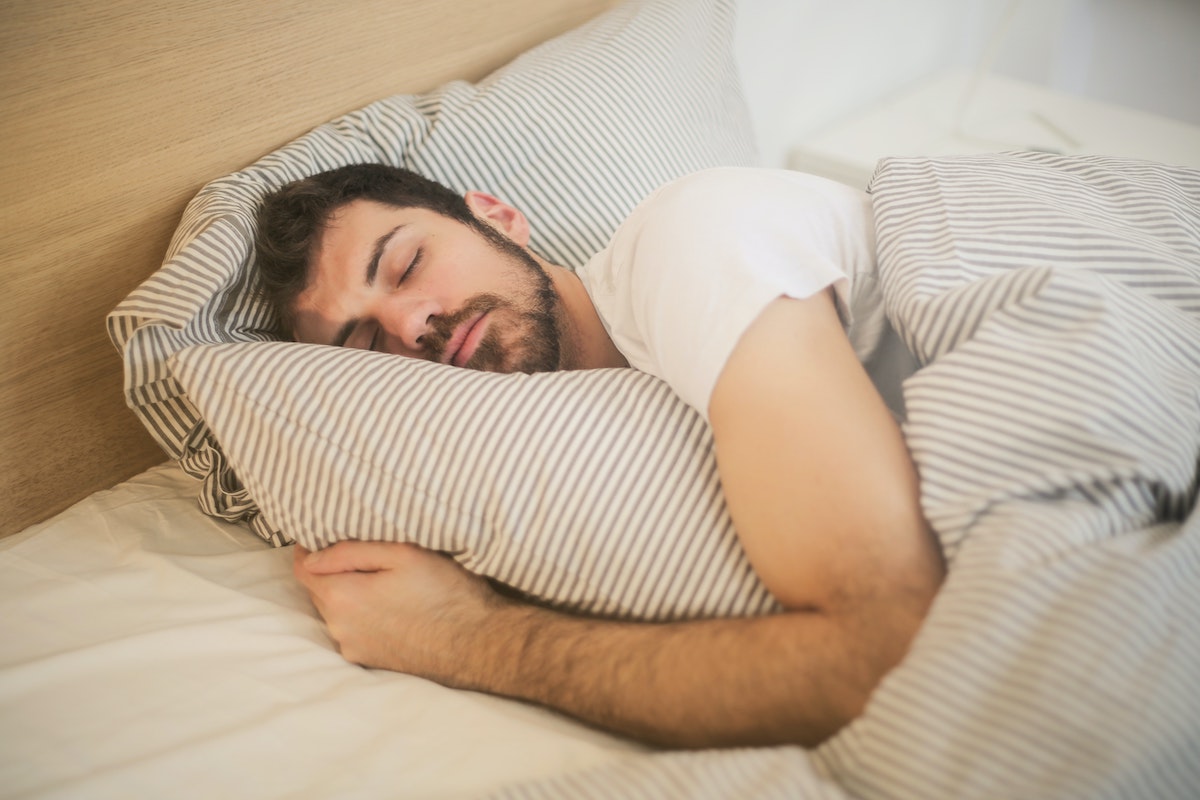
We all know getting enough sleep and the quality of your sleep are critical to your overall mental and physical health. If losing weight to be healthier is one of your goals, how you sleep can be an important component. We asked experts from various fields to weigh in on what you can be doing to maximize weight loss while you slumber, and the results may surprise you. The bottom line? Getting good quality sleep will impact your body’s ability to lose weight and to manage stress which can lead to weight gain.
How to maximize sleep for weight loss
Carlie Gasia, a Certified Sleep Science Coach at Sleepopolis, said there are a few factors to consider when thinking about weight loss. Some depend on the sleep itself and others depend on what you do with your waking hours.
Get enough sleep
“Aim to get at least 7-9 hours of sleep per night to support healthy weight management,” she said. “Research has shown that people who get less sleep tend to weigh more and have higher body fat percentages.” While the number of hours are important (and many of us struggle to get those precious hours), the quality of your sleep is equally as important.
Optimize sleep quality
Getting high quality sleep, said Gasia, is critical to burning fat. “Create a comfortable sleep environment by keeping your bedroom cool, dark, and quiet,” she said. “Limit exposure to screens before bedtime and avoid caffeine and alcohol.” This will help you fall into the REM sleep, a phase of sleep when your brain activity, breathing, heart rate, and blood pressure all increase, and it’s also when you would “burn the most fat during sleep,” added Rachel MacPherson, a Certified Personal Trainer and exercise nutrition specialist. Finally, “minimizing the amount of light around you,” said Yelena Wheeler MPH, RDN and Registered Dietitian Nutritionist of MIDSS. This means darkening shades in the bedroom, limited TV, and no flashlights.
Sleep at the same time every day
“Having a sleeping pattern helps keep the body balanced,” said Blanca Garcia, Registered Dietitian Nutritionist. “The body is a system; a balanced system also can affect the way you eat; good sleep keeps you on a cycle of good habits even with eating.” It may sound silly but setting an alarm to remind you that you need to be in bed in 15 minutes can help regulate sleep patterns.

What you do during the day matters
Your activity levels and eating habits can play a role in how you can maximize weight loss at night. Here are a few tips and tricks to do just that.
Build muscle mass
“Building muscle through exercise can help you burn more calories throughout the day, even while you sleep,” Gasia added. “Strength training exercises such as weight lifting, resistance band training, or bodyweight exercises can help build muscle mass and increase your basal metabolic rate.” If you are new to weight lifting and want to lose weight, adding simple exercises to your cardio routine can feel manageable and you can work your way up to more weight and higher reps as you go.
Follow a healthy diet
Many people want to know “will I gain weight if I sleep after eating?” and the short answer is no. Eating a healthy, balanced diet supports overall weight loss and also impacts how to burn fat while sleeping, but it comes down to calories in and calories out in a 24 hour period. “Focus on whole foods such as fruits, vegetables, lean proteins, and whole grains,” Gasia said. “Avoid processed and high-sugar foods that can disrupt hormones and promote weight gain.” But, added MacPherson, skipping carbs at night is a myth when it comes to fat loss. “It’s about overall calorie balance (in/out) and not about what happens at any particular time of day or night,” she said.
Manage stress
Stress is a big sleep disrupter and can promote weight gain overall. Practice stress-management, said Gasia, like “meditation, deep breathing, or yoga to promote relaxation and reduce stress levels.” Conversely, a lack of quality sleep “definitely increases stress levels that can affect weight loss goals,” said Garcia. “Therefore sleeping well is a great way to complement a healthy lifestyle.”
One way to manage stress before bed is using natural essential oils to improve sleep, said Po-Chang Hsu, Doctor of Medicine (MD) and a Medical Content Expert at SleepingOcean.com. “Some people feel that the smell of lavender and similar oils like chamomile and marjoram creates a soothing scent in the room that helps them relax and makes it easiest to fall asleep,” she said. “Try a few drops in a humidifier that can run while you sleep.”
How many calories do you burn sleeping?
If you want to lose weight, you probably want to know how many calories you can burn while sleeping. According to the Sleep Foundation, we burn around 50 calories an hour, which can vary slight depending on our personal basal metabolic rate and how much a person weights. The average number of calories is around 250-450 depending on these factors.
All of these factors will play a role in how you metabolize food, manage stress, and stay healthy throughout your life. If you don’t prioritize sleep and want to lose weight, you should start.



